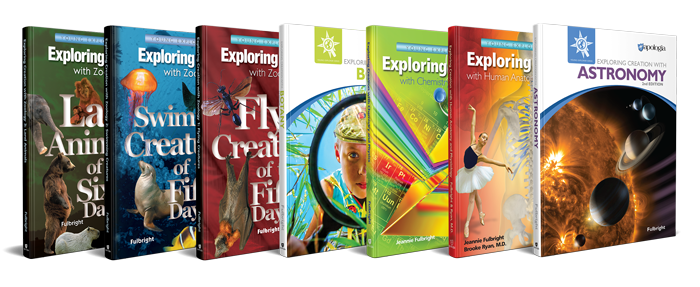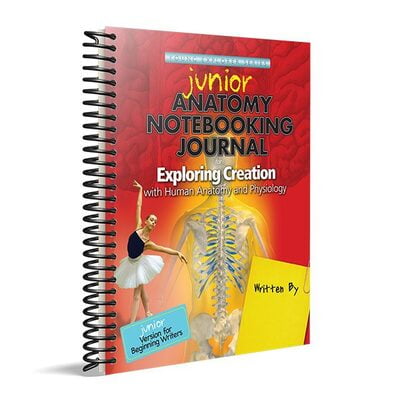Homeschool Science for Primary Age

The books in this award-winning homeschool science series were written for the elementary school child. The content can be simply understood by a kindergarten student, but it can also be comprehended and enjoyed through the sixth grade. Through this series, homeschool students will become true scientists as they observe nature, participate in experiments, and document all that they learn.
Where to start with the Young Explorer Series
You start wherever you can capture your child’s imagination. The goal is to let your child’s curiosity lead and learning will happen naturally. There is a reason our elementary series is called The Young Explorers Series. Our curriculum is designed to feed your child’s curiosity, not lead it.
When Do You Choose a Junior Notebooking Journal?
- Junior notebooks are designed for younger students who are still developing basic writing skills.
- Junior notebooks have easier crossword puzzles and activities.
- Junior notebooks have two colouring pages per lesson.
Exploring Creation
Exploring Creation with Anatomy and Physiology
Exploring Creation with Astronomy
Exploring Creation with Botany
Exploring Creation with Chemistry and Physics
Exploring Creation with Zoology 1
Exploring Creation with Zoology 2
Exploring Creation with Zoology 3
Overview of Elementary Science
Explore Apologia's K-6th grade Young Explorer Series for an elementary science curriculum in your homeschool. These unique courses can be completed in as little as twenty-eight weeks if you do science two days per week. They are also flexible enough so that they can be adapted to fit your homeschool’s goals.
What home educating parents are saying about The Young Explorer Series:
We LOVED Exploring Creation with Botany this past year when our children were in Kindergarten, first grade, and third grade. I love that I was able to use it across multiple grade levels and adapt the textbook to their level. I also used the Junior Notebooking Journal. . . exceptional!
What home educating parents are saying about The Young Explorer Series:
We just received my son’s first Apologia books—Exploring Creation with Zoology 2 textbook and Junior Notebooking Journal. My husband and I are blown away by the quality of the text and journal. We will definitely be purchasing apologia in future years and recommending it to all our friends!
What home educating parents are saying about The Young Explorer Series:
My favorite thing about Apologia Science is that it points to God our Creator. The Notebooking journals are an awesome way for our kids to process and show, in their own way, what they are learning.
What Makes Apologia’s Elementary Homeschool Science Unique?
Following a Charlotte Mason approach, we develop a conversation with students. Apologia texts are written directly to the student and explore the world God made using engaging conversational-style text. The text and illustrations engage young learners and pull them into the subject so that the subject matter comes alive.
Some curriculum developers promote the spiral approach to education. Students are exposed over and over again to minute amounts of a variety of science topics. Each year sees the same material, most of it review, some of it new, none of it complete. This method assumes that the young child is unable to understand scientific truths.
Throughout our textbooks, students are asked to retell or narrate the information they just studied. This helps students assimilate the information in their minds. The act of verbalizing in their own words propels students forward in their ability to effectively and clearly communicate the information to others. It serves to lock the information in their own words, in their own understanding, in their own minds. Students can’t orally explain a topic to someone else if they don’t understand it.
Additionally, every lesson in our elementary textbooks contains hands-on projects, activities, and experiments to bring concepts to your student’s level of comprehension. There are no dry disconnected facts taught in a spiraling fashion from one grade to the next. Instead, with Apologia science, students study, in great detail, a subject area of interest.





















